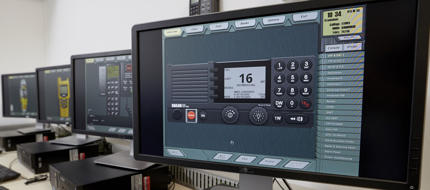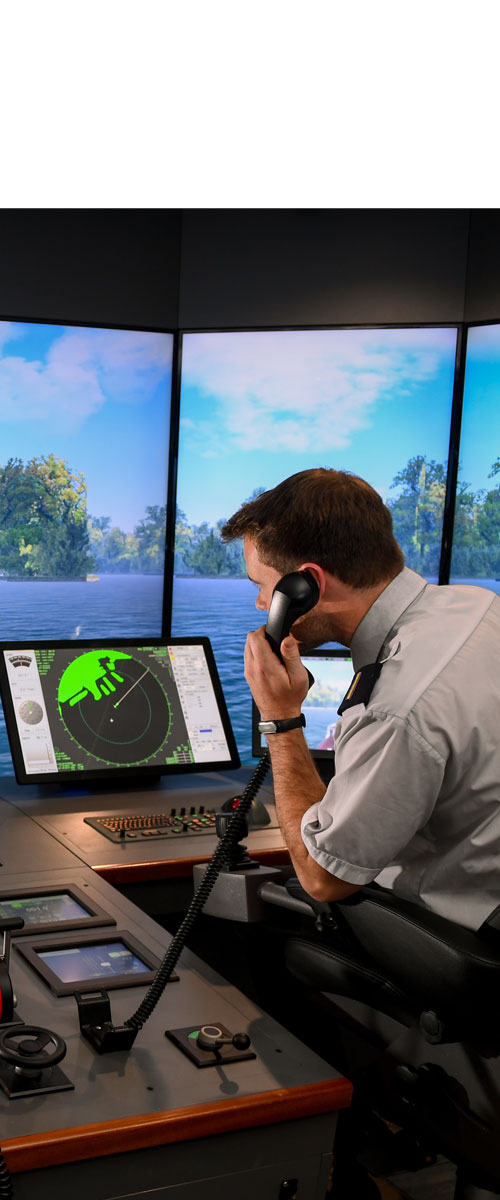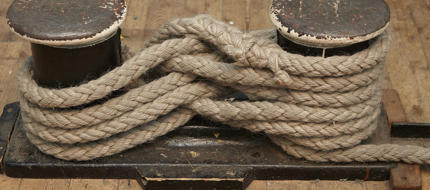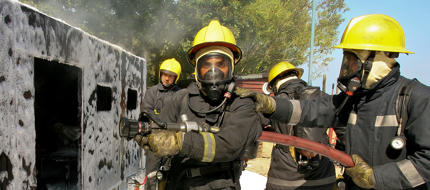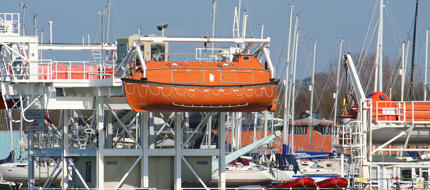About this course
Build the foundation of a great career as a deck officer in the dynamic maritime industry - the backbone of modern international trade. This innovative course combines the benefits of a maritime cadetship programme, supported by a sponsoring company and offering extensive hands-on training at sea on real working vessels, with the recognised career-enhancing potential of a full academic honours degree.
Fully sponsored by one of a huge range of shipping and maritime companies, and developed to meet the specific needs of the shipping industry and the Merchant Navy Training Board, your degree cadetship combines rigorous academic study in Southampton – one of the UK’s busiest ports – with extensive practical training at sea.
Shipping out as a deck officer cadet on a range of vessels owned or operated by your sponsoring company, you will develop the essential skills, knowledge and behaviours needed to become a deck officer in the Merchant Navy. As well as developing your personal, interpersonal and leadership skills, you will learn to work competently and responsibly as an individual and as part of a team.
Using theoretical knowledge, practical experience and professional skills and judgement informed by study and experience in the workplace, you will acquire a strong understanding of the fundamental principles and interrelationships of the three main shipboard functional areas – navigation, shipboard operations and management – and learn to anticipate, identify and generate timely and workable solutions to a wide range of problems and issues.
As part of your degree cadetship, you will gain your first qualification as an Officer of the Watch – and be equipped with all the knowledge and understanding you need to undertake tasks as detailed in the industry-based onboard training – and with academic exemptions for further professional qualifications under the internationally recognised Standards of Training, Certification and Watchkeeping (STCW) and UK Maritime and Coastguard Agency (MCA) regulations.
And with a full academic honours degree, you will also be well placed for a range of senior shoreside and management roles later in your career – making this the perfect course for a long and lasting career in maritime command.
This programme is aligned to the new UK-wide maritime officer cadetship syllabus developed by the Cadet Training and Modernisation (CT&M) Programme, led by the Maritime and Coastguard Agency (MCA). Effective from September 2025, the new syllabus reflects the current practices and technology used aboard modern vessels and supports the development of 'human element' skills - essential learning for today’s aspiring officers.
Certificate in Practical Artificial Intelligence
Every student at Solent University will also have the option to study an additional Certificate in Practical Artificial Intelligence qualification alongside their course. Free of charge, the course ensures you'll be prepared for a fantastic and varied career after graduation.
What you'll study
Phase 1
- 23 weeks (this is approximate and subject to change)
- Celestial Navigation, Maths and Science
- Marine Cargo Operations
- Marine Meteorology
- Operational Bridge Watchkeeping
- Operational Maritime Law and Project Management
- Operational Naval Architecture and Stability
- Operational Passage Planning and Electronic Charts
- Work-Based Learning (Operations)
- Basic Safety Training Week (BSTW) (STCW short course)
- Proficiency in Designated Security Duties (STCW short course)
Phase 2
- 27 weeks (sea phase lengths are approximate and subject to change)
- Work-Based Learning (Operations)
- MNTB Deck Training Record Book
Phase 3
- 16 weeks (this is approximate and subject to change)
- Applied Marine Meteorology
- Management of Bridge Operations
- Management of Passage Planning
- Management of Vessel Operations
- Marine Engineering and Vessel Maintenance
- Ship Stability: Theory and Practical Application
- Shipboard Management
- Shipmasters Law and Business
- Work-Based Learning (Management)
- NAEST, Theory and Practice (2 weeks)
Phase 4
- 49 weeks (sea phase lengths are approximate and subject to change)
- Work-Based Learning (Management)
- MNTB Deck Training Record Book
Phase 5
- 28 weeks (this is approximate and subject to change)
- Dissertation
- Leadership and Management
- Marine Surveying and Accident Investigation
- Maritime Business and Commercial Practices
- Maritime Sustainability
- NAEST, Theory and Practice (final week)
- MCA Orals preparation
- ECDIS (STCW short course)
- Advanced Fire Fighting (STCW short course)
- Efficient Deck Hand (STCW short course)
- Proficiency in Survival Craft and Rescue Boats (STCW short course)
- GMDSS (STCW short course)
- NAEST (Operational)
How you'll study
Where you'll study
The main classroom teaching for this course is delivered from Solent University's East Park Terrace campus, located in Southampton city centre.
All mandatory STCW maritime safety training courses are delivered from our Warsash campus.
We have a full range of industry-leading training facilities including bridge simulators and ECDIS suites where deck cadets can learn and develop their passage planning skills and navigate ships in an environment that closely resembles the equipment and layouts found on a modern ship's bridge.
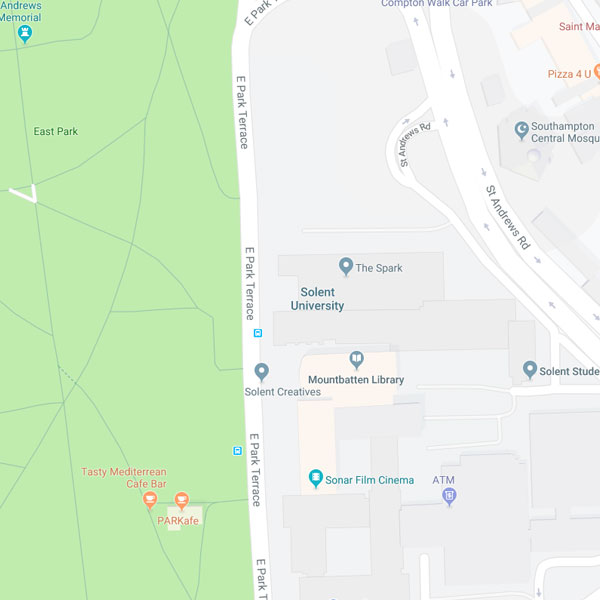
Facilities
How to apply
Entry requirements
104-120 UCAS points
Plus GCSEs at grade 9 to 4 (A* to C) in the following subjects:
- Mathematics
- English
- Science (with significant Physical Science content)
All cadetship programmes welcome applications from UK and International applicants as long as they meet the academic and PSRB requirements. Warsash Maritime School welcomes a diverse range of students and the school is committed to delivering a uniform experience to all students.
Medical requirements
Officer cadets must be in good health and capable of passing the Merchant Navy Medical Examination (ENG1). Navigation officer cadets must also have normal colour vision and be able to pass the MCA sight test, although corrective lenses may be acceptable in certain cases.
Anyone contemplating a career as a ship’s officer would be well advised to take a medical examination and sight test as soon as possible to find out if there are any physical bars to their career aspirations.
The MCA holds a list of approved doctors throughout the UK who are able to provide ENG1 seafarer medical examinations. This list can be found here.
Nationality
British shipping companies will normally only recruit UK or European Union nationals. However, MCA certificates of competency may be awarded to people of any nationality and the training programmes are open to all.
A potential international candidate from outside the UK and EU should secure sponsorship from a suitable shipping company that will be able to provide appropriate sea service as part of the cadetship programme.
International students should also hold a formal international English Language Testing System (IELTS) certificate of at least 5.5, as a good knowledge of written and spoken English is required to commence the programme.
Application and sponsorship
To apply for this course, you must undertake a three year engineer officer cadet training programme approved by the Merchant Navy Training Board (MNTB) and meet the academic entry requirements as stated.
The next step is to find a shipping company to sponsor you so that you can complete the sea service elements of the training programme. You should apply direct to the sponsoring companies for details of their recruitment policies and the availability of sponsorship.
There are a number of UK sponsoring companies that recruit UK/EU nationals as officer cadets to work in the various shipping sectors of the merchant navy (for example, cargo, container, cruise, tanker, etc.), either individual shipping companies recruiting to fulfil their own staffing needs or training organisations that recruit on the behalf of their clients.
The course has two intakes per year - in April and September.
